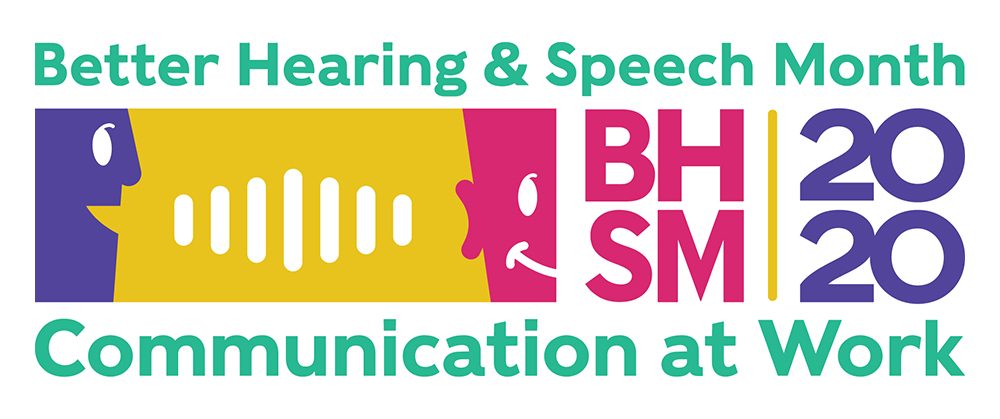Every May, ASHA leads the observance of Better Hearing & Speech Month (BHSM), a time for raising awareness about communication disorders. Given the pandemic, BHSM this year is focusing on the impact of COVID-19 on persons with communication disorders, offering them guidance and resources for managing the disorders at home.
One key audience is parents with children who were previously receiving in-person early intervention (EI) services. Parents may be worried about losing important progress with in-person services unavailable. To help them, ASHA has developed a list of EI resources that parents can use to keep their children on track. But there are other interruptions—not just in EI services. For this reason, ASHA is providing information for parents dealing with interrupted hearing health and school-based speech and language services this month, too. Audiologists work with many of the nearly 15% of all children aged 6–19 who have some sort of hearing loss. As part of BHSM, ASHA is offering tips for parents on promoting hearing health at home.
This information includes ASHA Journals articles that are of particular relevance during this unprecedented time—these articles address topics that can help both parents and practitioners who are working remotely.
Professionally speaking, speech-language pathologists (SLPs) working remotely may find themselves relying on parents to play a larger role in their children’s EI. The following three resources from the ASHA Journals provide helpful information on including parents in EI:
- More Than “Try This at Home”—Including Parents in Early Intervention: This sweeping article covers everything from which strategies to teach parents to adult learning processes and how to evaluate parent progress.
- Feasibility, Efficacy, and Social Validity of Home-Based Storybook Reading Intervention for Children With Language Impairment: The authors study a home-based parent–child intervention for children with language impairment; the intervention is focused on shared storybook reading, and the authors report positive findings in some areas.
- Parent-Implemented Communication Treatment for Infants and Toddlers With Hearing Loss: A Randomized Pilot Trial: In this study, parents learned communication support strategies for their infants and toddlers.
For audiologists working remotely with families, the following articles may be helpful in navigating the unfamiliar territory created by COVID-19 (parents may find them helpful as well):
- Parent–Professional Partnerships: Managing Behavior to Increase Hearing Aid Use: One of the biggest impediments to hearing aid use at home for children is behavior issues. Here, the authors look at techniques that audiologists can share with parents to increase their children’s hearing aid usage in the house.
- Parenting Stress and Maternal Coherence: Mothers With Deaf or Hard-of-Hearing Children: This article looked at interviews with mothers of children who are deaf or hard of hearing about stressors and stress-reducing resources.
ASHA emphasizes that all children still have the right to a free appropriate public education (FAPE) and that, for some children, virtual therapy may provide an equal benefit to children compared to in-person services. These articles from Perspectives of the ASHA Special Interest Groups provide guidance for school-based SLPs who may find themselves working remotely for the first time.
- Providing School-Based Speech-Language Therapy Services by Telepractice: A Brief Tutorial and Getting Started in School-Based Speech-Language Pathology Telepractice: These articles detail a program developed for students in rural school districts, focusing on rethinking service delivery for telepractice.
- Implementing a School-Based Telepractice Program: Early adopters in school-based telepractice go over what they’ve learned, providing helpful tips to those just getting started.
- Working With Facilitators to Provide School-Based Speech and Language Intervention via Telepractice: This article details the relationship between the SLP providing telepractice and a facilitator in charge of setting up and monitoring the electronic services; in today’s unique circumstances, the facilitator role will likely be filled by a parent.
We hope that these articles are particularly timely in light of regulations by federal, state, and local governments to “stay home, stay safe.” Although this period may seem particularly challenging for parents of children with speech, language, and hearing difficulties and those working with them, we hope that these resources—along with others provided by ASHA during BHSM—can better support everyone right now. For more on BHSM, check out http://www.asha.org/bhsm.









